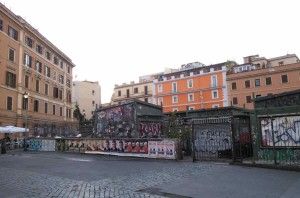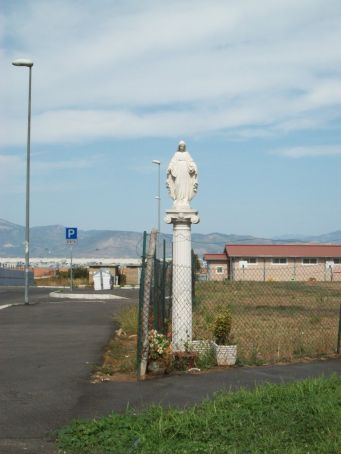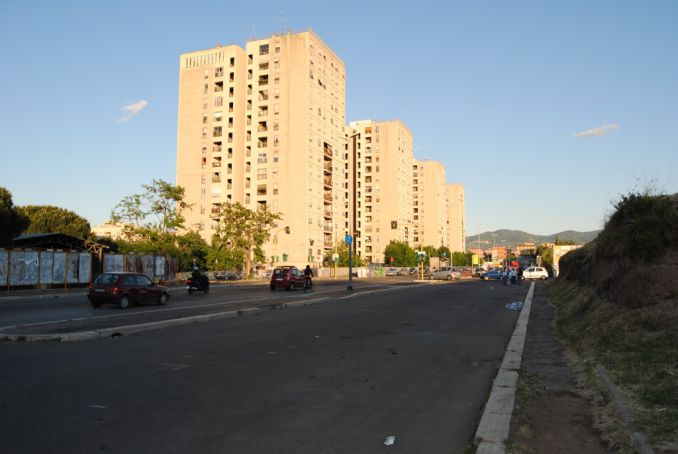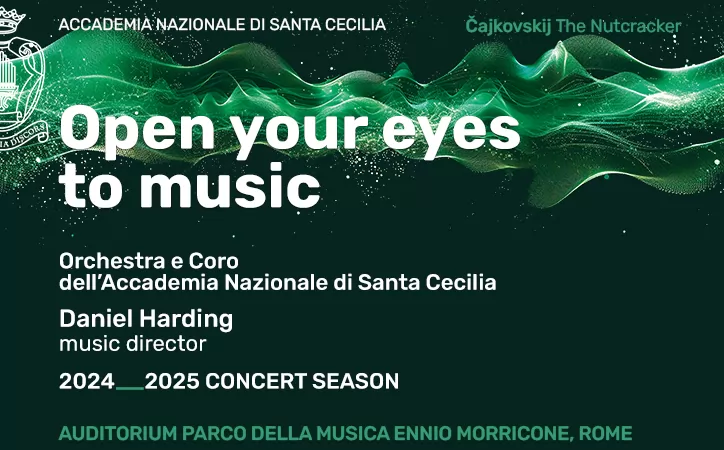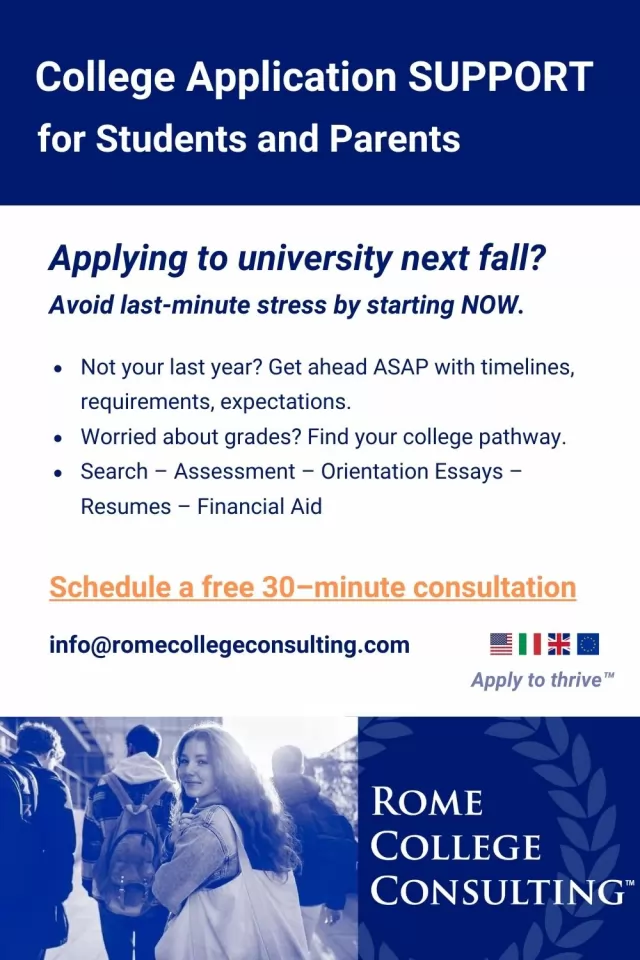Like Rome’s monuments, a stay in the Eternal City is a many-layered experience and needs time to appreciate.
Mike Dilien
“A-NI-MAL! A-NI-MAL!” three year-old Stivan yells. He is sitting on the kitchen floor and drumming on all our casserole dishes, which he has turned upside down. It is enough to drive Tsvetelina, his mother, up the wall. Meanwhile, I have to hurry for the airport to catch a flight to Rome.
I first arrived in Rome on a February evening eight years ago. While admiring the dark pillars of the Fori Imperiali, I thought I had done the trick: a research project at La Sapienza university would allow me to live among the remains of the empire I had been studying all those years at school. Ironically, after having grown up among Italian immigrants, I would now become an immigrant in Italy.
The mansard roof apartment I called home was superbly located: across from the Colosseum and halfway between the lab, where I would do research, and the faculty of engineering, where I would take courses. At lunchtime I would have a panino in front of S. Maria Maggiore or S. Giovanni, up and down the street respectively.
Roman flatmate
Yet the crowd of sightseers by day and pub-crawlers at night made me long for tranquillity. I moved to a place near the Caffarella park. I could not believe my luck when my flatmate, Luca, turned out to be a genuine Roman. On top of this, he was a student of archaeology and fluent in German – my Italian was a hit-and-miss mix of French and Spanish. We had long, interesting discussions on the Eternal City. I told Luca I was hesitating between exploring the city either geographically or chronologically. Luca was a museum guide and his father, an art teacher, had taken him to all the landmarks. Understanding Rome’s history, however, proved to be a lot harder than I had imagined it would be: thousands of years of civilisation had transformed nearly every building. For example, a temple has been turned into a church, then into a fortress and, finally, a warehouse.
Meanwhile, at university, the promising professor who was to supervise my research project hardly had time for me. Because of his meagre salary he was doing a second job in an aeronautical centre in the south of Rome; he rushed through his full-time university job on Wednesday afternoon and Saturday. I got a first glimpse of the life locals have in a tourist hotspot.
Different perspectives
Luckily, a group of kind-hearted Spanish and Polish students welcomed me into their ranks. While my Spanish friends further introduced the tradition of the botellón in Roman nightlife, my Polish friends sobered my belief in USSR-style communism. We spent hours in S. Lorenzo and Trastevere. I learned about the different perspectives on life young people from the old and the new EU member states have. The European Football Championship in June 2008 became our apotheosis. The day of the final, we arrived early at the garden of the Circolo degli Artisti. The Spanish were worried. They worried about their striker. They worried about their goalkeeper in case of penalties. In the end, La Roja won. We went to the Trevi fountain to celebrate. Someone jumped in the basin and got arrested. Afterwards, we returned to the Piazza dell’Immacolata. Two Italians, one playing the guitar, the other singing, performed a tarantella. The rhythm was thrilling. At the crack of dawn, our group had one of its last breakfasts in Termini.
Lonely summer
And then came that long, lonely summer. One by one, my friends left Rome and returned to their home countries. Luca went scavenging in the Abruzzi. By then, the research project was heading towards failure: my promoter in Brussels had taken maternity leave and because of the confidentiality agreement I had signed at my home university my supervisor had lost all interest in the project.
Now that I had more spare time, I explored the city. I wondered where the immigrants who always hang around in Termini disappear to after dark. When a compatriot of mine, a film student, told me about the documentary he was shooting in Rome’s suburbs, I wanted to explore the outskirts. While my friends visited Florence and Siena, I ventured into desolate places with unappealing names like Lunghezza and Martellona.
Wanderings
Every morning, I bought a one-way ticket and took the bus. I got off at the last stop and then walked my way back home. I took photographs, not of ancient ruins or Baroque churches, but of Madonna statues at crossroads and newly-built ghost towns that had hit the countryside like a meteorite.
During my wanderings, I met many immigrants. From East European builders and Latin American domestics to Indo-Asian kitchen porters: all people who were trying to make a living. I remember a Peruvian who wrote: “Non sono qui perché è uno dei posti più belli del mondo, ma soltanto per sopravivvere.”
Rome's migrants
Whereas some migrants stay legally in Italy, many do so illegally. I did not realise I was witnessing the forefront of today’s refugee crisis. Even when exploring the capital's Roma camps, I could not suspect a scandal of the nature and size of “Mafia Capitale”, a criminal syndicate accused of infiltrating city hall to win lucrative contracts in sectors such as immigrant housing and camps for Roma people. But what I did realise was that a delicate line separates an “expat” from a tourist and that another one, much sharper, separates a foreigner from an immigrant.
One early autumn evening, while strolling along the ancient wall, I wondered whether the Lazio sun and the landmarks of the Eternal City were worth a sky-high rent and an unsatisfactory professional life. I finished the research project as well as I could and returned home. Back in Brussels, I became fascinated by mass tourism and the relationship between a city centre and its periphery. I enrolled for a BA degree in anthropology and geography. And what other place could quench my fascination better than a tourist hotspot like Rome?
Return to Rome
The following year, I returned to Rome to attend La Sapienza’s summer school. It offers courses on ancient as well as modern Rome and includes guided tours. Among my fellow students was Patrick. For the past 15 years, Patrick had been living in Italy, separated from his family who had remained in Sri Lanka. He worked as a porter in a five-star hotel. All those years he had been sending money home for the private education of his daughter. Now that the civil war in his country had ended, the certificate from the summer school would allow him to return home and become a tourist guide.
One evening, Patrick called me asking me to come to the hotel. There he showed me a magnificent suite, a fully-fledged apartment with a lot of tapestry where the manager of FC Barcelona had stayed. One night in the suite cost about a year of Patrick’s wages. Patrick then took me to his workplace, a majestic lobby hall. He lifted a thick curtain behind which stood two old wooden chairs. He showed me how he slept on them between two long work shifts.
Enriching experience
Since then I visit the Eternal City regularly. In Rome, I do fieldwork. At home, using geographical information systems, I create thematic maps. Luca and I meet every time both of us are in town – he is doing a PhD in Germany. Since my Roman experience, people from all over the world have stayed at my place in Brussels. Like Tsvetelina whose parents, Serbian Roma, fled the ethnic conflict.
I take my bag, kiss Tsvetelina goodbye and promise Stivan that as soon as I am back, I will play the drums and imitate Animal the Muppet as many times as he wants me to.
Even when you do not achieve your original objective, a stay in Rome – or any other place for that matter – will enrich you. Only, you will not realise this until much later.



